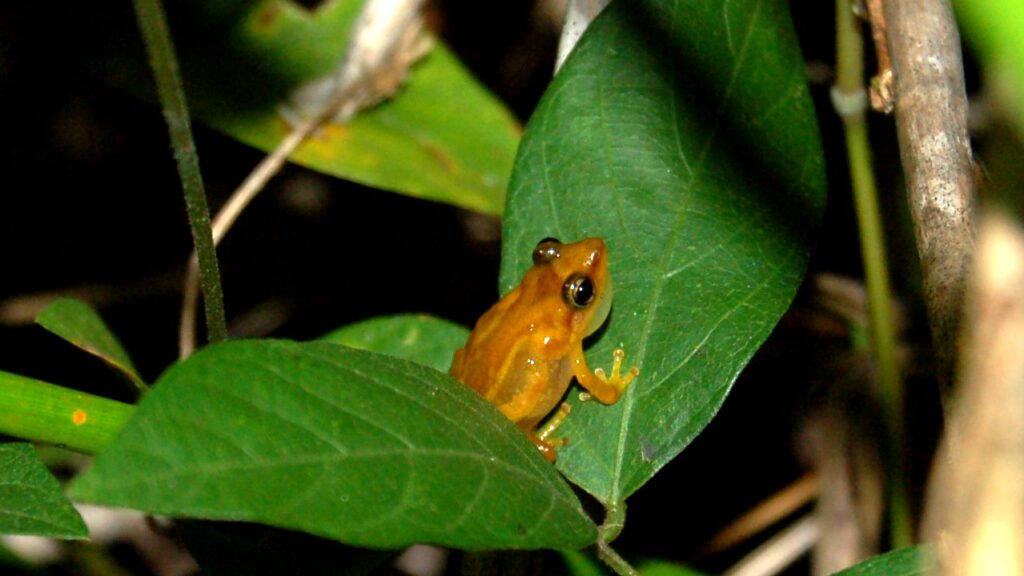Advancing Climate Change Adaptation Strategies for High Elevation and Endangered Lowland Coquí Frogs in the U.S. Caribbean

Project Information
Principal Investigator: Jaime Collazo (North Carolina Cooperative Fish and Wildlife Research Unit)
Project Start: January 2023
Proposed Project Completion: August 2025
Implements Science Plan Theme: Adaptation
Co-Investigators:
Adam Terando (Southeast Climate Adaptation Science Center)
Mitchell Eaton (Southeast Climate Adaptation Science Center)
Kathie Dello (North Carolina State Climate Office)
Eloy Martínez (Eastern Illinois University)
Alberto R. Puente Rolón (University of Puerto Rico-Mayaguez)
Overview:
Amphibians in the US Caribbean, like the well-known coquí frog, are particularly vulnerable to human-caused climate change. Coquí frogs are represented by 17 species across Puerto Rico and US Virgin Islands and include several mountainous and coastal species that are threatened by extreme heat and drying, loss of coastal freshwater marshes through saltwater intrusion, or both. Over the past decade, the Southeast Climate Adaptation Science Center has invested in several scientific investigations to understand how global climate change is likely to affect the local climate of the US Caribbean and how sensitive different coquí species are to changes in local climate and habitat conditions in Puerto Rico.
This project will use the results from these previous research studies to help resource managers adapt to a potentially warmer and drier climate with rising seas. The project team will: 1) identify areas in Puerto Rico that will provide suitable habitat for the most sensitive coquí species, or areas that could serve as climate change refugia, i.e. habitats that are expected to warm or dry at slower rates than the surrounding region, and 2) identify habitats that could be suitable in the future.
Products from this project will include maps of suitable habitat now and in the future for various coquí species, such as the endangered plains coquí (Eleutherodacylus juanariveroi), that can be used to support recovery efforts and adaptation planning by the US Fish and Wildlife Service and its partners.
